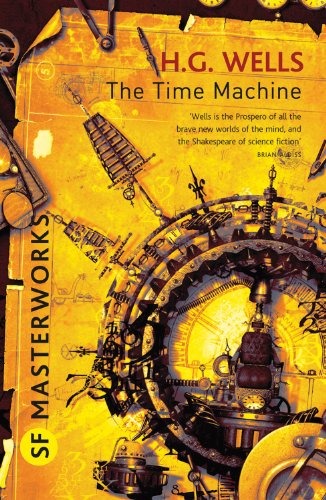
Although published more than 100 years ago, H. G. Wells' science fiction novel, The Time Machine, is still as thought-provoking and engrossing as it was then.The idea of time- travel was, and still is today, a controversial subject. We all participate inadvertently on a regular basis in some form of time-travel, whether it be our mind constantly flashing back to something that happened in the past, or when we visit a strange, futuristic place in our dreams. But the actual physical aspect of saddling ourselves in a real time machine where we can direct our travels back to an ancient era, or bolt onwards towards the unknown future, remains intriguing to all of us.
The attraction of time-travel wasn't the clincher for me; it was more the Time Traveller's assessment of the political and social aspects of the futuristic society he has discovered. He escapes a rather limited and narrow-minded society when he steps into his time machine to explore the unknown future. What kind of state will he find his future fellow humans to be in? Will this future version of his fellow man be intellectually and morally advanced, or will he find a regressed and decadent society? I confess my disappointment that the story ended as it did -- I wanted so much to sit by the fire as the Time Traveller told us what else he has discovered; perhaps I expected he would give me hope that we're going about the right way towards establishing a just society.



 2
2





